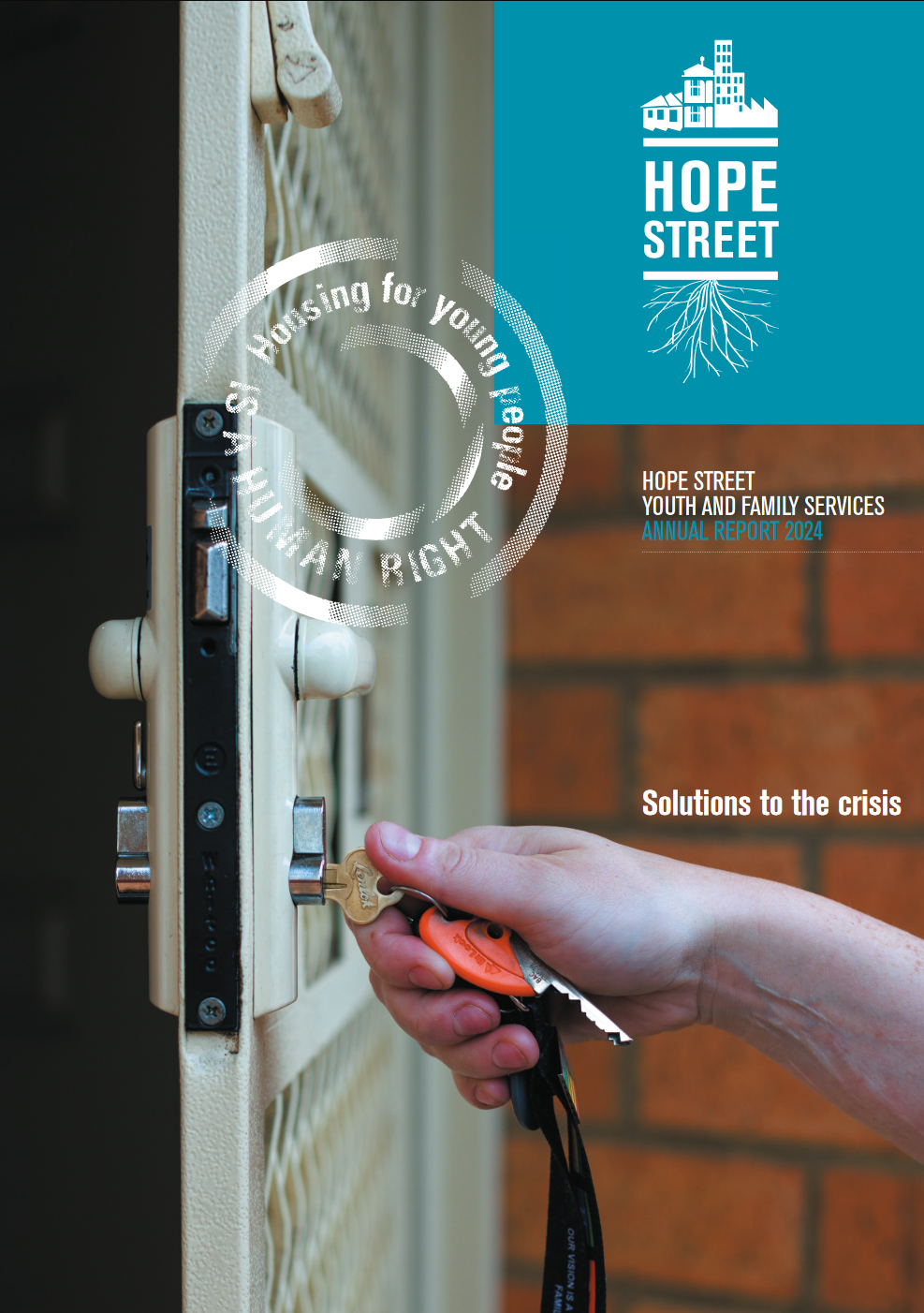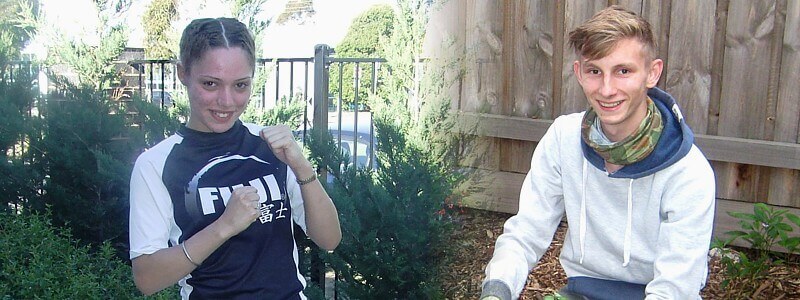Araminta* first heard about Hope Street's Hope to Home program in 2017 during a presentation made by the program's Community Integration Facilitator at Beacon of Hope, a community organisation in the City of Whittlesea.
Araminta, aged 20, had recently moved to Melbourne from Perth, was unemployed and had been homeless for three months, couch surfing at friends' houses. She had left Perth suddenly, taking only a suitcase of clothing with her, after her relationship ended and her ex-boyfriend kicked her out of his house. She had moved from her home of New Zealand to pursue the relationship with her ex-boyfriend, who she had met online. She left her family and community behind in pursuit of the promise of a loving relationship and a future together, but ended up homeless and feeling without hope.
She says her time of couch surfing at different friends' houses was challenging. "I felt really vulnerable and a bit lost, to be honest. I would just get comfortable and then I'd have to switch to another house. I couldn't change my Perth Driver's Licence to a Victorian one because I didn't have a permanent address. There were lots of other documents too that I couldn't complete cause I didn't have an address. It feels very strange when people ask you for your address and you have to say ‘I don't really have a home'."
Araminta struggled to ask for help, fearing judgement from others. "It is really difficult to ask for help cause you don't want to look stupid or silly. I had just had my heart broken and been told to leave the house by him. Being 20 and being looked at and judged and having people look down on you and presume you must have done something wrong in your life – it was so hard. People make you feel like you're stupid or that you made some bad choices and bought it on yourself," she said.
Meeting Abeer, the Hope Street Community Integration Facilitator in Whittlesea, at the presentation about the Hope to Home program was a turning point for Araminta. "Abeer is so nice, she's friendly, she talks a lot and she's not too old. She welcomed me really nicely. I met her at a stage in my life where I was so shocked at what had happened to me and I felt really vulnerable. She just approached me in such a welcoming way, and she told me she would help me look for a job, further my studies and find a place to call home."
Araminta and Abeer made a plan for the journey ahead. "Firstly, she asked me what I wanted to do, what sort of job I wanted to get. She encouraged me to think long-term. I told her I wanted to be a teacher and she encouraged me to start out in education support," she said. With Abeer's support, Araminta enrolled in a diploma in early childhood care, completed a first aid certificate, created a CV, and then secured a casual job as an assistant with a before and after school care program. With her newfound income, Araminta was able to start contributing towards her friends' living costs whilst she couch surfed. "It felt really good to be able to chip-in to help with bills and groceries," she said.
With a few months' income behind her, Abeer and Araminta started to look at rental properties. "Abeer helped me search for properties, know where to look, what budget to look within and all those things," she said. They found Araminta a room to rent in a lady's home, and with the Hope to Home Moving In Kit, were able to furnish the room, fill the pantry with food and purchase a fridge because of her Halal requirements.
Araminta describes what it felt like to move into her own home: "I felt settled, like I'd finally settled down, my clothes were hung and weren't in my bags. I could comfortably sleep and wake up and do what I liked whenever I liked. My lifestyle was more organised because I was working and studying – it was my schedule not the schedule of the person whose couch I was crashing on."
When asked to explain how Hope to Home's support helped her, Araminta struggles to find the words. "Honestly, it was a dream – I don't think I could have done anything without something like that happening to me. I was really lost and didn't have the right guidance and I was so vulnerable. Abeer was such a good support for me, I could call her at any time and she would often just call me to see how I was doing," she says.
Araminta is currently working as a co-ordinator at a before and after school care program, a promotion from her initial role as support worker. She has recently completed her Diploma in Early Childhood Education and Care and plans to take up part-time university studies soon, completing a Bachelor of Education. When asked what she'd like to be doing five years from now, Araminta replies "Teaching, having my own class room, leaving an impact like the impact that Abeer left on me, working with youth and giving back."
When asked what message she'd like to send to Hope Street and the funding partner the enabled the Hope to Home program, she paused to gather her words. "Thank you for being there when not a lot of people were. And thank you for always giving the right advice and leaving the best impact on my life. I'd like to thank everyone who was involved in the program. It's nice to know that there are people out there who don't judge and are just willing to help. We all have our story."
(* Name changed to protect identity)




